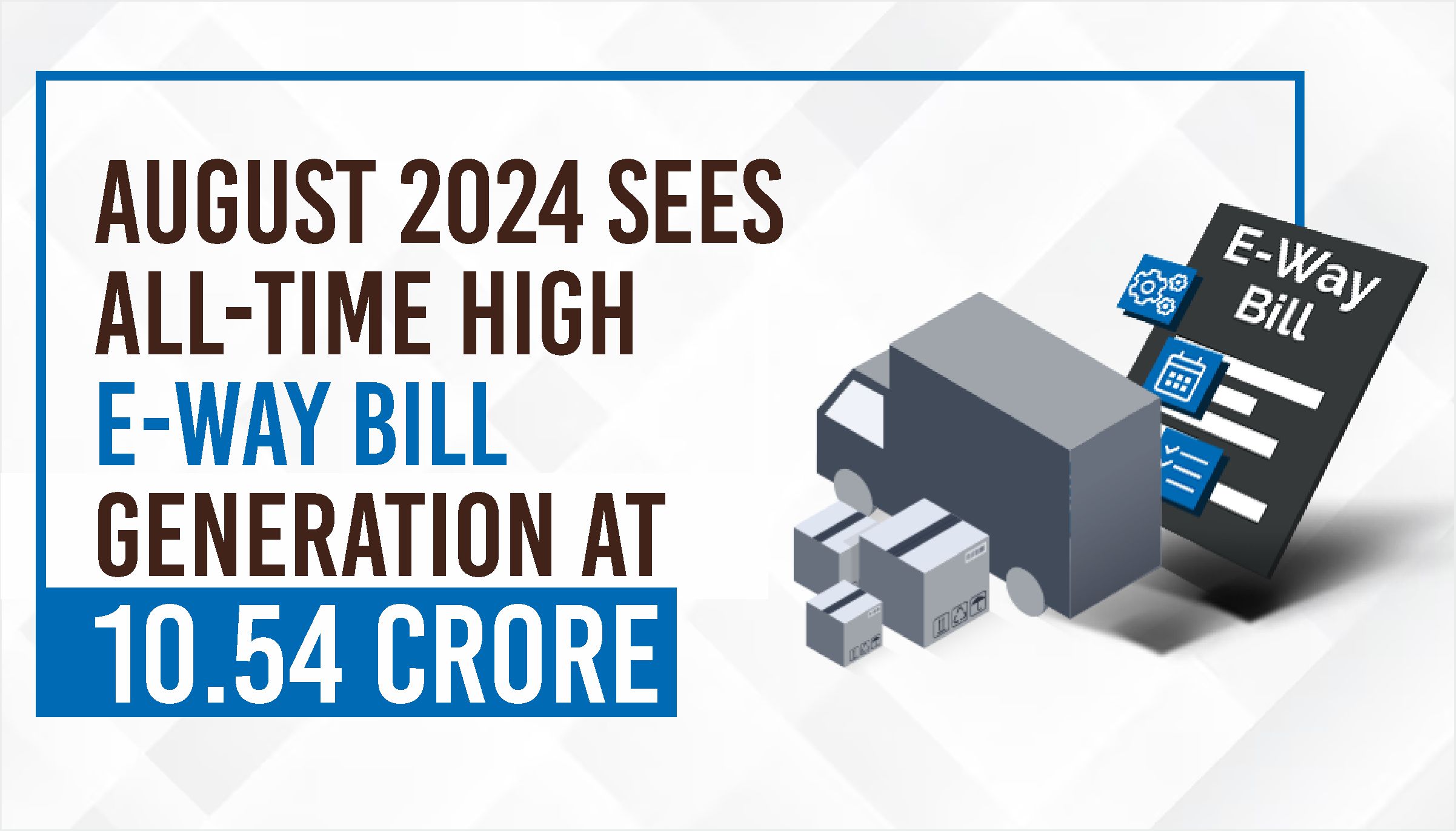August 2024 Sees All-Time High E-Way Bill Generation at 10.54 Crore

E-way bill generation in India has surged to an all-time high, reaching 10.54 crore in August 2024, according to data from the Goods and Services Tax Network (GSTN). This marks the sixth instance since the e-way bill’s inception in 2018 that monthly generation has crossed the 10 crore mark, and the fourth consecutive time in the current fiscal year. The surge can be attributed to enhanced compliance efforts and rigorous enforcement by GST field formations, highlighting its role as a key economic indicator of activity within the country.
E-Way Bill Generation and Its Implications
An e-way bill is an electronic document required for the movement of goods valued over Rs 50,000, as per Rule 138 of the CGST Rules, 2017. This mechanism ensures that taxes on goods in transit are accounted for and assists in tracking the movement of goods across the country. While the generation of e-way bills is not directly linked to GST collections, the rising numbers suggest an improvement in overall compliance, which can positively impact tax revenues.
The government is expected to announce the GST collections for goods and services utilized in August 2024 on October 1, 2024, when the monthly tax collection data is released. A spike in e-way bill generation, which acts as a proxy for economic activity, hints at a boost in consumption, manufacturing, and trade.
Stringent Enforcement Drives Compliance
Experts attribute this record-breaking generation of e-way bills to active enforcement measures by GST field formations and mobile squads, which have been diligent in inspecting vehicles for missing, expired, or inaccurate e-way bills. These rigorous checks have led to increased compliance and prompted businesses to ensure their e-way bills are in order. As a result, discrepancies in e-way bills have become a significant issue, contributing to a rise in GST-related cases in Indian High Courts. Many of these disputes revolve around e-way bill errors, leading to increased litigation in the absence of GST Tribunals, which are yet to be established.
Tax professionals point out that while the enforcement of e-way bill rules has strengthened compliance, it has also imposed a financial burden on taxpayers. A pre-deposit of 200% of the disputed tax amount, required in such cases, adds considerable financial stress on businesses.
Economic Indicators Signal Strong Demand
In addition to improved compliance, the record e-way bill generation also reflects the resilience and strength of the Indian economy. Tax analysts suggest that the rise in e-way bills is a strong signal of demand, particularly in sectors like manufacturing, retail, and logistics. The surge is seen as a reflection of both increased compliance and the successful monitoring efforts by the government, which help ensure that businesses adhere to tax regulations.
Further supporting this notion of robust economic demand is India’s HSBC Manufacturing Purchasing Managers’ Index (PMI), which also showed positive growth during this period. The continued expansion of domestic consumption, coupled with a boost in manufacturing and trading activities, has played a vital role in driving economic momentum.
The record-breaking e-way bill generation in August 2024 highlights not only the effectiveness of enforcement measures but also the resilience of India’s economy. While compliance pressures remain, the surge in e-way bills signals both an active economy and increased tax regulation adherence, setting the stage for positive tax revenue outcomes in the months ahead. As the government continues its monitoring efforts and improves systems for tax governance, the e-way bill system will remain a crucial part of ensuring transparency and efficiency in India’s goods movement network.
